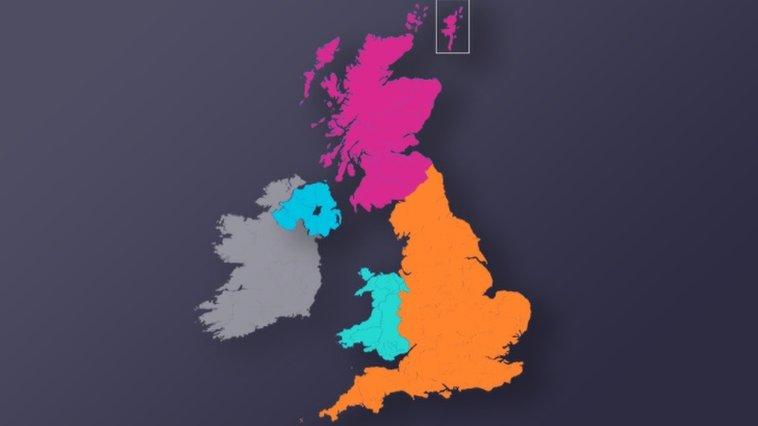Coronavirus: UK, US and EU send help to India in Covid-19 battle
- Published
- comments
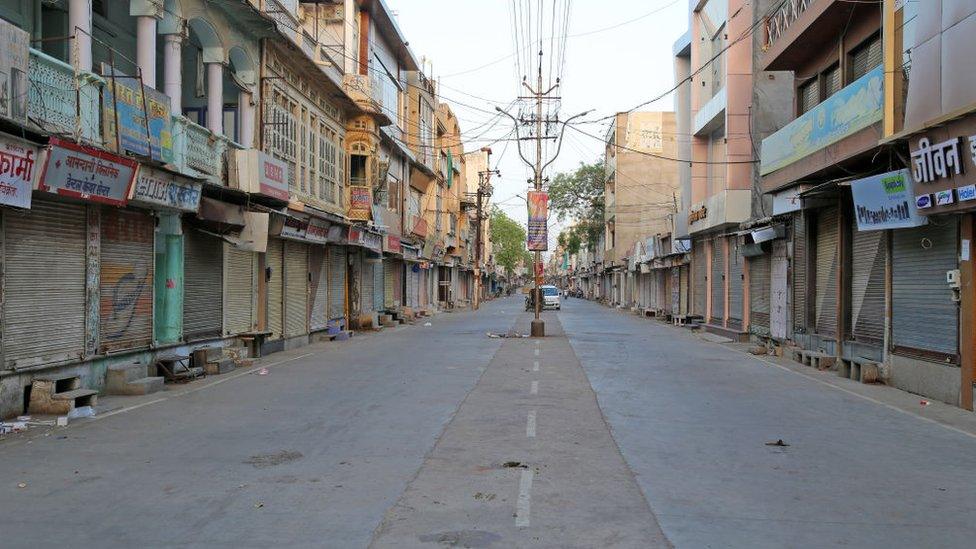
The Indian government introduced a lockdown in some cities last week to help tackle the spread of the virus
The UK and other countries have begun sending lots of medical equipment and supplies to help people in India as they battle against growing Covid-19 cases.
The country has been badly affected by a second wave of the coronavirus and on Monday, it had the highest number of daily coronavirus cases for a fifth day in a row, reporting 352,991 new infections.
The UK is sending ventilators and oxygen concentrator devices to India, where a critical shortage of oxygen has made treating some Covid patients difficult.
"We stand side by side with India as a friend and partner during what is a deeply concerning time in the fight against Covid-19," UK Prime Minister Boris Johnson said.
What are other countries doing?
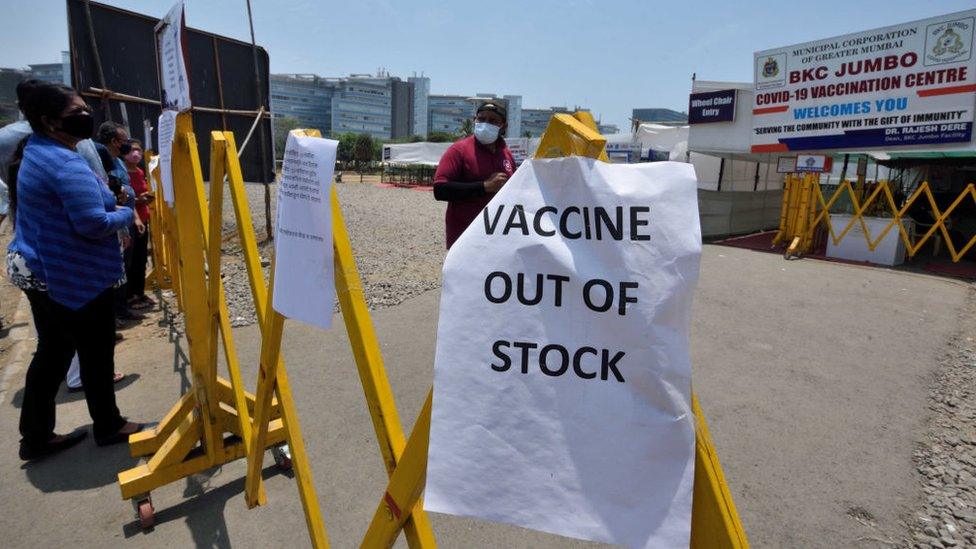
America is planning to send supplies to India so the country can produce more vaccines
The US has said it'll be lifting a ban on sending raw materials to India which will allow the country to produce more vaccines for people. It's also said it'll be supplying the nation with rapid test kits, ventilators and personal protective gear.
"Just as India sent assistance to the United States as our hospitals were strained early in the pandemic, we are determined to help India in its time of need," President Joe Biden said.
France has said it'll be providing oxygen to India, the European Commission in Brussels said it planned to send oxygen and medicine and Pakistan, which borders India, has offered medical equipment and supplies. One of Pakistan's non-profit organisations has also offered to send 50 ambulances to India.
What's the current situation in India?
WATCH: BBC reporter Rajini Vaidyanathan on India's coronavirus crisis
Hospitals in many Indian cities are struggling to cope with the number of coronavirus patients in need of care and some medical facilities have been forced to turn people away.
Testing labs are also overwhelmed and its taking longer for test results to come back, making it more difficult for doctors to assess the progression of the disease in their patients.
CT scans are also used by doctors to find out more about the condition of patients, but it's taking days to get an appointment.
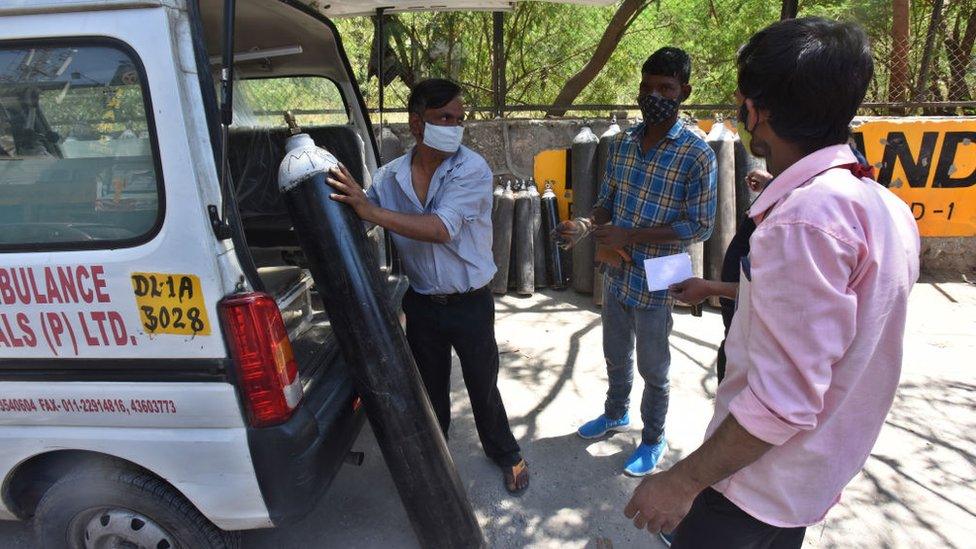
Oxygen supplies have been limited in India
Health officials have said that more infectious variants have been driving the increase in infection rates.
The Indian government has been heavily criticised for not being prepared for a second wave.
A number of large scale events took place in the country in recent weeks including the religious festival Kumbh Mela and various political gatherings.
- Published26 April 2021
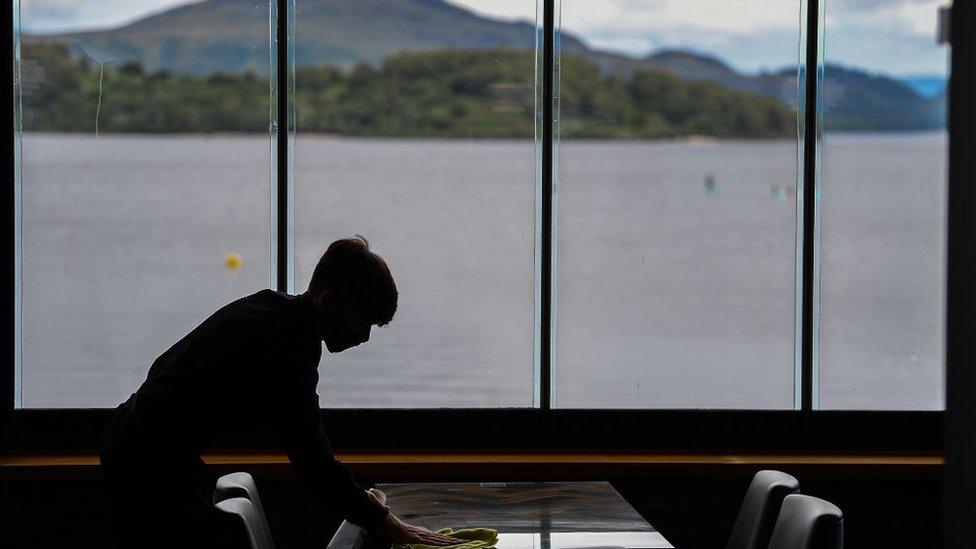
- Published10 May 2021
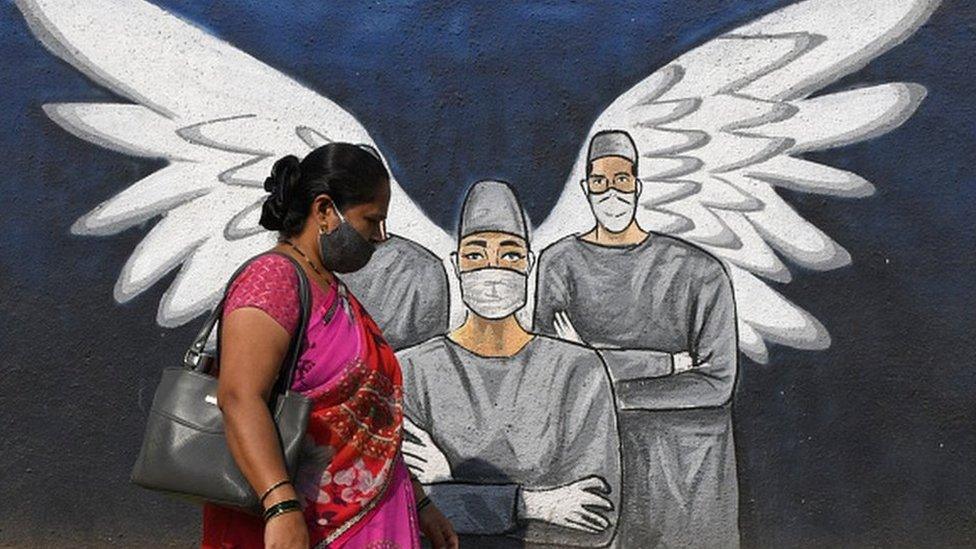
- Published6 April 2022
